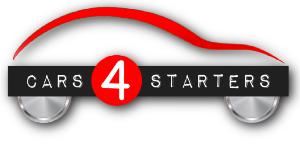005,1,007,2,1 Series,2,1_million_volts,1,1.9,1,10_cars,1,10-year warranty,1,100 Bloody Acres,1,100 years,3,100_Bloody_Acres,1,100_years_old,1,1000hp,1,10th Anniversary_Edition,1,1100,3,1200,1,120Y,1,128_years,1,12Cilindri,1,1300,1,1500,4,1600_GT,1,1800,2,190_SL,1,190SL,2,1917 Golden Submarine,1,1923,1,1925,1,1928,1,1929 Minerva limousine,1,1939,1,1947,1,1948_Chris_Craft_20_Custom,1,1950 DKW Munga,1,1952,2,1953,3,1955,1,1955 Fuji Cabin,1,1956,1,1960,1,1960s,1,1961,2,1962,3,1963,1,1965,1,1966 TV series,1,1966_TV_series,1,1967,3,1968,1,1974,2,1975,2,1988,1,1988 VL Commodore SS Group A Walkinshaw,1,1995,1,2000,1,2001,1,2007,1,2008,2,2014-2017,1,2018,1,2023,3,2024,2,2025,1,205_GTI,2,230SL,1,240Z,1,250_GT,1,2CV,3,2WD,1,3_Wheeler,2,300,2,300_Series,2,300_SLR_Uhlenhaut,1,3008,2,300C,1,300e,2,300h,2,300SL,1,308,4,328,1,33_Stradale,1,35_inch,1,350h AWD Sports Luxury,1,356,1,357,1,35th anniversary,1,35th anniversary edition,1,370Z,2,3D_printing,1,4_Series,1,4.2,1,408,2,40d xDrive,1,48_215,1,4x4,3,4Xe,1,5,1,50 Cent,1,500,4,5008,2,500e,4,500h,1,508,2,50th_anniversary,1,550,1,55th_Fiat,1,58th_annual_Easter_Jeep_Safari,1,595,1,600,1,64,1,65_years,1,695,2,6C,2,6x6,1,7,1,7_seater,1,70 years,1,70_series,5,700km,1,718,1,750,1,75th_anniversay,1,79 Series,1,8_track,1,8-track,1,86,1,8th_wonder,1,8x8,1,90,1,911,3,911_GT3_RS,1,912_E,1,912c,1,A 45 S 4MATIC,1,A Clockwork Orange,1,A Quiet Place,1,A_Lonely_Place_to_Die_2011,2,A_Quiet_Place,1,A3,3,A4810,1,A6GCS,1,Aaron_Paul,2,Abarth,8,ABC,2,AC,1,AC Cars,1,AC Cobra,1,AC Cobra GT Coupe,1,AC_Cars,1,AC_Cobra,1,AC_Cobra_GT_Roadster,1,Acapulco_Thing,1,Accord,4,Aceman,1,ACM,1,Across_The_Universe_2007,1,Acura NSX,1,Acura_NSX,1,Adamas Bros,1,ADR,1,Adrian_Dunbar,1,adverts,1,AERO,1,Aero 8,1,Aero_8,1,aerodynamics,1,Aeromobil,1,aeronaut,1,AH_McDonald_Co,1,AiMOGA,1,air_conditioning,1,Airconsole,1,Aircross,1,Airflow,1,airline_seats,1,Airspeeder,1,Alan Hamilton,1,Alaska,3,Albania,1,Albanita,1,Albert_Champion,1,Alconi,1,Alec Mildren,1,Alec_Mildren,1,Alex_Xydias,1,Alfa Romeo,9,Alfa_Romeo,25,Alfasud,1,Alien,1,All the Money in the World,1,All_the_Money_in_the_World_2017,1,Allegro,1,AllGrip,4,Alpha Ultra Hybrid,1,Alpine,4,Alpine A110 Premiere,1,Alpine_A110_Premiere,1,Altima,2,Altitude,1,Alto,2,aluminium,1,AmariCooper,1,Amarok,2,Amazon,5,Amazon Prime,1,Amazon_Prime,5,AMB,1,Ambassador,1,AMC,6,American,1,American Graffiti,2,American Ultra 2015,1,American wild west,1,American_muscle,1,American_Ultra_2015,1,American_wild_west,1,Americanise,1,AMG,2,AMG_G_63,1,AMG_GT_63_S_E_Performance,1,Ami,2,AMI_6,1,ammonia,1,ANCAP,5,Andrea Mancini,1,Andrea_Mancini,1,Andretti,1,Angus Sampson,1,Annette Bening,1,Ansel_Adams,1,Anthony Hayes,1,Anthony LaPaglia,1,Anthony_Hayes,1,anti_tank,1,Antonio Lago,1,Anya_Taylor_Joy,1,APL,2,Apollo_11,1,Aprilia,2,Apt_Pupil_1998,1,Archive_81,2,archives,1,argentine_ants,1,Ariel,1,Arkana,2,Arocs,1,Arsham,1,art_car,2,artist,1,Ash_Barty,1,Asher Keddie,1,Asher_2018,2,Ashes,1,ASPREY,1,assassinate,1,Aston Martin,2,Aston Martin Vantage GT4,1,Aston_Martin,7,Aston_Martin_Vantage_GT4,1,Astra,1,astronauts,1,ASX,3,Atlantic,1,Atmos,1,Attenborough,1,Atto_3,1,Aubrey Plaza,1,Auburn,1,auction,5,Audi,30,Audi Activesphere,1,Audi RS 3,1,Audi RS3,1,Audi TTS,1,Audi_TTS,1,audio,3,Austin,4,Austin 7,1,Austin_7,1,Austin_Healey,1,Austin_Seven,1,Australia,1,Australian_built,1,Australian_Open,1,auto,1,Auto Avio 815,1,Autobianchi,1,Autocar,1,automatic_charging_robot,1,autonomous,2,Avant,1,Avanti,1,Avenger,4,Aventador,2,aviator,1,AWD,2,AWD tS Spec B,1,axed,2,Ayers_Rock,1,Azami,2,Baby_Lunar_Cruiser,1,Back to the Future,1,badge,2,Baleno,1,barnfind,1,barris,1,Barry_Green,4,Baskerville,2,Batman,2,Batmobile,2,batteries,2,battery_care,1,Batur,1,BBC,2,Beach Bomb,1,Beach_Boys,1,Beast,1,Beaulieu,1,Bédélia,1,beer,1,Beethoven,1,Beetle,1,Beforeigners 2019,1,Beforeigners_2019,1,Beijing,2,Bel Air,1,Bel_Air,1,beldone,1,Belgium,3,Belmont,1,Below 2002,1,Below_2002,1,Ben_Stokes,1,Benedict_Samuel,1,Benrus,1,Bentayga_EWB,1,Bentley,10,Berlinetta,1,Bernal,2,Bernie Ecclestone,1,Bertone,2,Beta,1,Beverly DAngelo,2,Beverly_DAngelo,2,Biagini_Passo,1,Bignan,1,bike,1,bike_riders,1,Bilinsky,1,Bill Mitchell,1,Bill Pullman,1,Bill_Pullman,3,Billy Bob Thornton,1,Billy_Bob_Thornton,1,Binge,1,BiØfil,1,birthdays,1,Black,1,Black Edition,1,Black Mirror 2011,1,Black_Arrow,1,Black_Edition,4,Black_Mirror,1,Blackwing,1,Blade,1,Blower,1,Blue_Meanie,1,Bluebird,1,bluetooth,1,BMC,2,BMW,29,BMW 135i Sport,1,BMW_135i_Sport,1,BMW_Concept_Touring_Coupé,1,BMW_Motorrad,2,BMW_R_18_100_Years,1,BMW_R_18_Roctane,1,BMW_R_nineT_100_Years,1,Bo_M,1,Bodies_2023,1,Bolide,1,Bolzano_to_Cortina,3,Bond,1,Bonsai,1,Boombox,1,Boomerang,1,Borgward,2,Born,1,Borzou_Sepasi,1,Bottas,1,Boxing Day,1,Boxing_Day,1,Boxster,1,Boy_Swallows_Universe_2024,1,Brabus,3,Brad_Renfro,1,Bradley_Cooper,1,Brain_to_Performancerain,1,Brazil,2,Brendon_McCullum,1,Brett_Lunger,1,Bricklin,1,Briggs & Stratton,1,British,2,British_Library,1,British_Motor_Heritage,1,Brock,1,Bronco,2,Brooke,1,Brooks_Stevens,1,Brothers Nest 2018,1,Brothers_Nest_2018,1,Brough,2,Brougham,1,Bruce Greenwood,1,Bruce Pascal,1,Bruce_Lee,1,Bruce_Meyer,1,bruises,1,Bryan Cranston,2,Bryan_Cranston,1,BRZ,2,bstreetsmart,1,BT_50,1,Bucciali,1,bucket_list,1,buckle_up,1,Buddy_Rogers,1,Buffalo Boys,1,Buffalo_Boys_2018,1,Bufori,2,Bugatti,11,Buick,1,Buick Century Caballero,1,Bungee,1,Burrell,4,Burton,1,Bus,1,buster keaton,1,buster_keaton,1,Buttertubs,2,BX,1,BYD,4,bZ4X,5,C 200,1,C_63,1,C_HR,2,C-Class,1,C-HR,2,C10,3,C200,2,C300,1,C4,2,C40,2,C5,1,C5_X,3,Cabriolet,1,Cadillac,11,Cadillac_V_Series.R,1,Caleb Landry Jones,1,Caleche,1,Callaway,2,Callum,1,Caltex,1,Calty,1,Camille_du_Gast,1,Camira,2,campaign,1,Camry,4,Canada,4,Candela,1,Cannon,6,Cannon_XSR,1,Cannonball Run,1,Cannonball_Run,1,Capri,2,car,1,car accessories,1,car radio,1,car sales,2,car_care_tips,1,Car_colours,1,car_free,1,car_radio,1,car_sales,3,Carabo,1,Cargo,1,Cargo_2017,1,Carnival,1,Carol Shelby,1,Carrozzeria_Touring,1,cars,6,cars4starters,1,Casey Affleck,1,Castagna_Vittoria,1,Castle Combe,1,Castro,1,Caterham,3,Caterpillar,1,CAYENNE,1,Cayman,1,CbyC,1,Celebrity,1,celebrity_cars,1,celebritycars,1,Celestiq,1,Celica,1,Cerato,7,certified,1,CH_R,1,Chain mail,21,Charger,3,charging,1,Charging ahead,178,Charles Stewart Rolls,1,Charlie Chaplin,2,Charlie_Chaplin,1,cheapest,1,Cheddar_Gorge,2,Cherry Blossom,1,Chery,12,Chery Journeo Concept,1,Chev,1,Chevrolet,12,Chevrolet Nomad,1,Chevrolet_Impala,1,Chevy,2,Chevy Chase,1,Chevy_Chase,2,Chief,1,Chinese,5,Chiron,3,Chitty_Chitty_Bang_Bang,1,chopper,1,Chris_Craft,1,Christmas,1,Christmas Day,1,Christmas Vacation 1989,1,Christmas_Vacation_1989,2,Christopher Lloyd,1,Christopher_Plummer,1,Chrysler,18,Chrysler_by_Chrysler,1,Chrysler_Museum,1,Chryslermatic,1,CIA,2,Cimmaron,1,Citroen,14,City,2,City_Transformer,1,Civic,11,Cizeta,1,Cizeta V16T,1,Cizeta-Moroder V16T,1,CLA,1,Claes_Bang,1,clara bow,1,clara_bow,1,clarke,1,Classic,4,Classic Team Lotus,1,classic_cars,1,Classic_Team_Lotus,1,classics,1,Claudio Zampolli,1,Clayton Jacobson,1,Clayton_Jacobson,1,ClevelandBrowns,1,Climate_Council,3,Clint Eastwood,1,Clint_Eastwood,1,Clio,4,co_driver,1,Cobra,2,Coetzer,1,Coffee run,1,coffee tables,1,Col_de_Turini,3,Cold Skin,1,Cold_Skin_2017,1,Coles,1,Collecting Cars,1,collection,1,Collins Edition,1,Cologne,1,Colombia,2,colours,1,Colt,1,Comanche,1,Comet,1,Commander,1,commercial,2,Commodore,2,Commuter,1,Compass,4,Competizione,2,concept,7,concepts,1,concert,1,Concert_for_Bangladesh,1,Condor,1,Condor_2018,1,Consul,1,Continental,1,Continental Nineteen Fifty X,1,Conversations,1,convertibles,1,cooking,1,cool paint,1,Cooma,1,Cord,1,Cordeel,1,Corolla,10,Corolla Cross,2,Corolla_Cross,5,Coromandel,2,Corona Zombies,1,coronavirus,1,Corsair,1,Cortina,4,Corvair,2,Corvette,7,Cosmo,2,costs,1,Cote_D’Azur,2,Cotswolds,2,Count_Louis_Zborowski,1,Countach,1,Countryman,1,coupe,2,coupes,2,COVID_19,1,Cowry,1,CR_V,5,CR-V,4,crackers,1,Craig_Breedlove,1,crank,1,crash_test,1,crash_test_dummy,1,Creative_Rides,1,Crosby,1,Cross,1,Cross_Country,1,crossover,1,Crosstrek,2,Cruze,2,Cry Macho 2021,1,Cry_Macho_2021,1,Crypto,1,Crypto_Cars,1,CS,1,CT_1,1,CT200h,2,Cubitt,1,Cupra,5,custom,2,Custom PHEV,1,CX_3,1,CX_60,3,CX_70,1,CX_8,2,CX_9,3,CX_90,3,CX-30,1,CX-60,1,CX-8,1,Cyberster,3,cycle,1,cyclecar,1,Cyclone Tracy,1,Czech,1,D_528,1,D_MAX,3,D_MUX,1,D-MAX,3,D-Type,2,D318,1,Dad,1,Daimler,2,Dana Delany,1,Danny_Murphy,1,Dar_Salim,1,Dark_Horse,2,Dark_Waters_2019,1,Darmont,1,Darren_McGavin,1,Dart,1,Darwin_Deckchair_Cinema,1,Datsun,3,David Carradine,2,David Harbour,1,David Tennant,1,David Wenham,1,David_Franklin,1,DB5,1,DBX S,1,De Vaux,1,De_Niro,1,De_Soto,1,de_Vries,1,DE-FINE,1,Dead Mountain,1,Dead_Mountain,1,Dead_Reckoning,1,Deadloch 2023,1,Dean Moon,1,Dean_Jeffries,1,death,1,Deepal,2,Defender,6,Defender 90,1,Defender_130,1,Delahaye,1,Delaunay,1,Delaunay-Bellville,1,DeLorean,1,demand,1,Den of Thieves 2018,1,Dennis_Weaver,1,Denzel_Washington,2,Des 2020,1,Des_2020,1,Design,1,Design House,1,Design_to_Driveway,4,DeSoto,1,DeSotomatic,1,Detroit Electric,1,Detroit_Electric,1,DeVo,1,Diana_Dors,1,Diane Lane,1,Diane_Lane,1,diarrhoea,1,Dick Matthews,1,diesel,1,Dieselgate,1,digital_art,1,Dinosaurs_1991,1,disabled_parking,1,Discovery,1,Discovery Sport,2,Disney,1,DKW,1,Dodge,10,Dodge Caravan,1,Dodge Challenger,1,Dodge Charger,1,Dodge Viper,1,Dodge_Challenger,3,Dodge_Viper,1,Dodgematic,1,Doing_a_Bradbury,1,Dolcevita,1,Dolphin,2,Dominos,1,Don_De_La_Rossa,1,Donald Campbell,1,Donington,1,Donnelly,2,Dr Who,1,Dr_Astrid_Linder,1,Dracula,2,drag_racing,1,Dream drives,140,Dream_drives,1,Dreamin Wild 2022,1,Driven to Succeed,1,Driven_to_Succeed,1,drug_lord,1,DTM,1,Dual_Motor,1,Ducati,2,Duel,1,Duesenberg,1,Dukes_of_Hazzard,1,dummy,1,Durango,2,Durango 95,1,Dustin_Hoffman,1,Dutch,1,Dutch_Reach,1,DVD,1,Dynamiq,1,E Pace,1,E_2008,2,E_3008,1,e_Partner,1,e_POWER,2,e_scooter,1,E_Tech,3,E_Transit,1,e_tron,1,e_tron_GT,1,E_Type,3,e-4orce,1,e-Partner,1,e-POWER,1,E-Transit,2,e-tron GT,1,E-Type,2,E350,1,E5,3,Earth,1,Earthcruiser,1,East_Anglia,1,Easy Rider,1,Easy_Rider,1,eBay,1,eBike,1,eCanter,1,Echo_in_the_Canyon_2018,1,Eclipse,2,Eclipse Cross,1,Eclipse_Cross,3,Ecosport,2,Ed Cole,1,eDeliver_7,1,eDeliver_9,1,Edsel,2,Edwards_to_Steamboat_Springs,2,EF,1,EF_Holden,1,eFuels,1,EGG,1,EH,3,eHEV,3,eHEV RS,1,eHEV_LX,1,eight_track,1,eight_track_cartridge,1,eight-track,1,eight-track cartridge,1,Eisenhower,1,Eite,1,EJ_Holden,1,El_Camino,1,Elantra,1,Eldorado,1,electric,56,electric cars,1,electric vehicle,1,electric_boat,1,electric_truck,1,electric_vehicle,11,Electric_Vehicle_Council,2,electric_vehicle_savings_calculator,1,electric_vehicle_tax,1,electric_vehicles,2,Electrica,1,Electrified,2,Electrogenic,1,elements,1,Eletre,1,Elise,2,Eliška_Junek,1,Elite,1,Elodorado,1,Elon_Musk,1,Emeya,2,Emily Hampshire,1,Emily_Blunt,1,Emira,1,emissions,2,Enhanced,1,Enyaq,1,Enyaq_RS,1,Epic_Games,1,EQA and EQB 250,1,EQS 680 SUV,1,EQS_53_4MATIC,1,Errett,1,ES,5,ES300h,1,Escape,1,Espada,2,Essence,3,Essie Davis,1,Essmann,1,Essmanngreen,1,est drive,1,est_drive,2,ET,1,eT60,1,EU,1,Eureka,1,Euro,2,Europa,1,EV,77,EV3,3,EV5,1,EV6,4,EV6_GT,1,EV9,6,Everatti,1,Everest,3,Everrati,1,eVito,1,EVs,6,EX30,2,exhaust,1,Exige,2,Exner,1,expensive,1,Extreme_330_XTR6x6,1,Eye_in_the_Sky_2016,1,F Sport,1,F_150,3,F_85,1,F_Pace,1,F_type,4,F-150,2,F-type,1,F1,22,F100,1,F80,1,factory,1,Fairlane,5,Fake 2024,1,Falcon,5,fart,1,fast_charger,1,Fastback,2,fatal_car_crash,1,Fauda,1,Fauda_2015,1,FC_150,1,FCAI,4,FE,1,Fearless 2017,1,Fearless_2017,1,feisty,2,Felicity Ace,1,Felicity_Ace,1,Felten,1,Fern Sutherland,1,Ferox,1,Ferrari,12,Ferrari 360 Modena,1,Ferrari 488 GTB,1,Ferrari F430,1,Ferrari_360_Modena,1,Ferrari_488_GTB,1,Ferrari_F430,1,Ferruccio,1,Festival of the Unexceptional,1,FIA,1,Fiat,15,Fidia,1,Fiesta,2,figures,1,Final_Edition,1,fined_for_speeding,1,fins,3,Firebird,3,First Ferrari,1,first hatchback,1,first_blood,1,First_car,1,Fit_for_a_King,1,Fitz_and_Van,1,FIVA,1,five,1,five_door,1,five-door,1,FJ,2,FJ Cruiser,1,FJ_Holden,1,flash,1,Flashman,1,Flitewing,1,floats,1,Floyd_Clymer,1,flunk,1,Flying_B,1,flying_car,1,Flying_Spur,2,Focus,2,Force of habit,23,Force_6,1,Force_8,1,Ford,90,Ford Focus RS,1,Ford Mustang EcoBoost,1,Ford_Focus_RS,1,Ford_Galaxie,1,Ford_GT,1,Ford_Heritage_Vault,1,Ford_Ranger,1,Ford_v_Holden,1,Fordlandia,1,Forester,3,forgotten,1,Formula 1,3,Formula E,1,Formula fun,37,Formula One,1,Formula_1,20,Formula_2,1,Formula_E,1,Formula_One,3,Fortuner,4,Forward_control,1,Fossmobile,1,Foton,1,four_stars,1,Foxtel,1,FPV,1,France,6,Frank_Hershey,1,Frank_Shaffer,1,Frankfurt,1,Freelander,2,Freemont,2,Freeway,1,French gang,1,fuel,1,fuel_consumption,1,fuel_prices,1,Fuel_standards,1,Fugazi,2,full circle,1,Fuso,1,FX,1,G 580,1,G_60TH,1,G_Class,1,G-Class,1,G25,1,G50e,1,G70,4,G80,4,GAC,1,Galaxie,1,Gallardo,1,Gangs of London 2020,1,Gangs_of_London_2020,1,Gary_Cooper,1,Gary_Oldman,1,Gemballa GT 550,1,Gemballa_GT_550,1,GEN.TRAVEL,1,General Motors,2,General_Motors,2,Genesis,20,Genesis_X_Gran_Berlinetta_Tribute,1,George_Foote_Foss,1,George_Gallion,1,George_MacDonald_Fraser,1,Gerard Butler,1,Germany,2,Get_Smart,1,Ghost,1,Ghost Stories,1,Ghost_Stories,1,Gilda,1,Giocattolo,1,Giorgio Moroder,1,Giugiaro,2,Giulia,7,Giulia_GTAm,1,Giuseppe_Campari,1,Gladiator,5,glare,1,glass_car_mascots,1,GLS,2,GLX,1,GM,13,GM_H,1,Goddess,1,Godless,2,gold,1,Gold 2022,1,Gold_2022,1,Golf,3,Goliath,2,Goodguys,1,Goodwood,3,Google,2,Google Cloud,1,Gordini,1,Government_support,1,GP,2,GR,6,GR 86,1,GR Corolla,1,GR Sport,1,GR Yaris,1,GR_Corolla,1,GR_Sport,4,GR_Yaris,1,GR86,6,Gran_Coupe,1,Grand Cherokee,1,Grand Voyager,1,Grand_Cherokee,4,Grand_Prix,7,Grand_Voyager,1,Grandeur,1,Granvia,2,Great Wall,4,Great_Alpine_Road,1,Great_Ocean_Road,1,Great_Wall,11,Great_Wall_Motors,2,Grecale,1,Greece,2,Green Room 2018,1,Green_Hornet,1,Green_Room_2018,1,Greenish_gold,2,Gregoire,1,Gremlin,2,Greyound_2020,1,grid_girls,1,Griswold,1,Grosser,1,Grossglockner,2,GSR,2,GT,5,GT_Line,1,GT_R,2,GT_Sport,1,GT-Line,3,GT2,1,GT40,4,GTI,2,GTO,4,GTP ZX-Turbo,1,GTR_XU_1,1,GTS,1,GTS_R,1,GTV,2,Guantanamo,1,Guilietta,2,Guinness,1,Gullwing,1,Guy Ritchie,1,GV60,5,GV70,4,GV80,4,GWM,14,GX,1,H6,3,Haas,1,Hagerty,5,Haggerty,1,hall_of_fame,1,hamburger,1,Hand of God,1,Hans_Ruesch,1,Hard_Quiz,1,Hardy,1,Harley_Davidson,1,Harris,2,Harry_Bennett,1,Hartung_Sparta,1,hatch,1,Hathaway,1,haunts,1,Haute_Voiture,1,Haval,10,hawkins,1,HD,1,headlights,1,Healey,2,Heart_Attack_Grill,1,Hector McQuarrie,1,Heinz,1,Helen McCrory,1,Helen_Mirren,1,Helica,1,Helle_Nice,1,Hemi,1,Hemsworth,2,Hennessey,4,Henry Royce,1,Henry_Ford,1,Henry_Ford_Museum,1,Henry_J,1,Henry_J_Kaiser,1,Heritage,2,Hertzel_Steve_Pinto,1,Hethel,4,HiAce,1,High_Court,1,Higham_Park,1,Highlander,1,Hilux,10,Hino,1,hippos,1,Hisham_Suliman,1,historian,1,historic,1,Historic Leyburn Sprints,1,Historic_Leyburn_Sprints,1,history,2,hockey,1,Holden,32,Holden Monaro,1,HOLDEN V8 TIL 98,1,Holden_HR_Coupe,1,Holden._HSV,1,Hollywood,1,Holman_Moody,1,holy_grail,1,Honda,38,Honda 9 Coupe,1,Honda Civic Type-R,1,Honda_Civic_Type_R,1,hook-tuns,1,Horbrick,1,Hornet,1,Hot Wheels,2,hot_rod,1,Hotchkiss,1,house,2,HQ_HJ,1,HR,1,HR_V,2,HR-V,1,HS,2,HS_EV,3,Hudson,2,Hugh Grant,1,Hurst,1,HWM,1,Hybrid,36,hydrofoil,1,hydrogen,1,Hyundai,66,Hyundai Veloster,1,Hyundai_Veloster,1,I Am Not a Serial Killer 2016,1,I_Am_Not_a_Serial_Killer_2016,1,I20_N,1,i30,6,i30 N,1,i40,2,i45,2,i5,4,Iain Glen,1,IAM_RoadSmart,1,Ian_Fleming,1,Ian_McKellen,1,icecream,1,Iceland,1,ID. 4,2,ID. 5,2,Idris_Elba,1,Ignis,2,Imogen Poots,1,Imogen_Poots,1,Impala,1,Impreza,3,Inchcape,1,India,3,Indian,3,Indianapolis,1,Indy_500,1,IndyCar,1,Infantry Squad Vehicle,1,inquiry,1,Inster,3,INSTEROID,1,Intens,1,Interceptor,1,International,2,inventions,1,invest,1,Ioniq,2,Ioniq 5,3,Ioniq_5,1,Ioniq_6,4,Ioniq_6_Electrified_Streamliner,1,Ireland,2,Irwin Allen,1,Irwin_Allen,1,IS,1,Islay,1,Iso,1,Iso_Rivolta_Lele,1,Isotta Fraschini,1,Isuzu,10,It_Girl,1,Italy,2,Its the end of the fing world,1,Its_the_end_of_the_fing_world,1,iview,4,ix35,1,J_K_Simmons,2,J.Laverack_Aston_Martin_.1R,1,J8,1,JAC,3,Jack Ryan,2,Jacky_Ickx,1,Jaecoo,2,Jag,3,Jaguar,27,Jaguar Land Rover,1,Jake_Gyllenhaal,1,James Franco,1,James McAvoy,1,James_Bond,1,James_McAvoy,1,Jamie Whincup,1,Jamie_Whincup,1,Japanese,1,Jason Bateman,1,Jason Statham,1,Jason_Bateman,1,Javelin,1,Jayne_Mansfield,1,Jazz,1,JCW,1,Jean_Rédélé,1,Jeb Bass,1,Jeep,28,Jeep_Wagoneer_S,2,JeepS_Limited,1,Jeff_Koons,1,Jensen,2,Jeremiah Johnson,1,Jeremiah_Johnson,1,Jerry & Marge Go Large 2022,1,Jesse Eisenberg,1,Jesse_Eisenberg,1,Jet,1,jet_setting,1,jet-setting,1,JFK,1,Jimny,5,JLR,1,Jodie_Kidd,1,Jody_Scheckter,1,Joe Schemansky,1,Joe_Pickett,1,John Cooper Works,1,John Lennon,1,John Malkovich,1,John Schinella,1,John_Krasinski,1,Jolion,7,Joseph_Frazer,1,Josh Brolin,1,Josh_Brolin,1,journalist,2,Journey,2,Judith_Durham,1,Judy Davis,1,Julie_Mehretu,1,K4,3,Ka,1,Kakadu,1,KAMManufaktur,1,Kangoo,1,Kapka,1,Karakoram_Highway,1,Karmann,1,Karmann_Ghia,1,Karosseriewerk,2,Kate Box,1,Kato,1,Kawasaki,1,KB-2,1,Kelvin_van_der_Linde,1,Kenneth_McAlpine,1,Kenworth,1,Kevin Costner,1,Kevin_Costner,1,Kevin_van_der_Linde,1,Kia,58,KIng Zog,1,Kizashi,1,Klausen Pass,1,Klausen_Pass,1,Kluger,4,Koba,1,Kolchak,2,Kombi,1,Kona,7,Koup,1,Krista Kosonen,1,Kristen Stewart,1,Kristen_Stewart,1,kubrick,1,Kung Fu,2,L.A. Manwaring,1,L07,1,L7,1,Lagonda,1,Laguna_Seca,1,Laika,1,Lakeside,2,Lalique,1,Lamborghini,14,Lamborghini Gallardo,1,Lamborghini Murcielago,1,Lamborghini_Gallardo,1,Lamborghini_Murcielago,1,Lammas-Graham,1,Land Cruiser,1,Land Rover,5,Land Rover4,1,land speed record,2,Land_Cruiser,7,Land_Rover,7,land_speed_record,2,landau,2,Lando Norris,1,lane assist,1,Las Vegas,1,Las_Vegas,2,Last of the Mohicans,1,Last_Man_Standing,1,Last_of_the_Mohicans,1,Launch mode,18,Laura Linney,1,Laura_Linney,1,LAvion,1,LBX,4,LBX Morizo RR,1,LC,1,LC79,1,LDV,6,Le Mans,2,Le_Mans,3,leaded_fuel,1,LEAF,3,Leapmotor,3,leased,1,Lego,3,Leno,1,Leo_Pruneau,1,Leon,1,Let Him Go 2020,1,Let_Him_Go_2020,1,Let_the_Right_One_In_2022,1,Lexus,35,Lexus LM,1,Lexus_LY_680_Luxury_Yacht,1,Lexus_RZ,1,Lexus_UX_300e,1,Leyburn,2,Leyland,3,LFA,1,licence_plate,1,Lightning,2,Limited,1,limited edition,1,Lincoln,1,Line of Duty,1,Line_of_Duty_2012,1,Lingenfelter,1,Lions_Road,2,Listen up,2,Lite,1,lithium_ion,1,Little Wheels,1,Livermore,1,Lloyds,1,LM,3,LM002,2,LOeuf Electrique,1,logo,1,London,1,Long_Range,2,Longford,1,look_a_likes,1,losers,1,Lost in Space,1,Lost_In_Space_2018,1,Lotus,14,Lotus_Elan,1,Louis_Gerard,2,LS,1,LS 400,1,LS_U,1,LS-M,1,LTD,1,Luce929,1,Lucid,1,luggage area liner,1,Lunaz,1,Luther_The_Fall_Sun_2023,1,Lux,1,Luxury,2,luxury_cars,1,LX,5,LX600,1,Lyriq,1,M-5 pickup,1,M-505,1,M2,2,M3,1,M35i,1,M4,2,M5,1,M60_xDrive_Touring,3,Maar,1,Maarten_van_Pel_and_Renske_Cox,1,Macan,1,Macau,1,Mach_E,2,Mach-E,1,Mache_E,1,Mack,1,Macquarie_Bank,1,Madeleine Sami,1,Maeving,1,Magma,1,Magna,1,Magnum_700,1,Mahindra,4,Mahindra_Scorpio,1,Mahle,1,Major,1,Makkina,2,Malvern_Hills,2,Man_on_Fire,1,Man_on_Fire_2004,1,Manchester,1,Manta,1,Manuel Garcia-Rulfo,1,Marcel Layet,1,Marina,1,marion mack,1,marion_mack,1,Mark 8.5,1,Mark Bonnar,1,Mark_2,1,Mark_Wahlberg,1,Marlin,1,Mars,1,Martin Compston,1,Martin Donnelly,1,Martin_Compston,1,Martin_Donnelly,1,Martin_Freeman,1,Maruti,1,Mary_Elizabeth_Winstead,1,Maserati,13,Mattel,1,Max,1,Max_Chilton,1,Max_Irons,1,May,1,Mayflower,1,Mazda,37,Mazda Capella,1,Mazda MX-5,1,Mazda_787B,1,Mazda_MX_30_e_SKYACTIV_R_EV,1,Mazda_MX_5,1,Mazda2,4,Mazda3,1,Mazda6,1,MC20,1,McDonald’s,1,McLaren,4,McLaren_540C,1,McMurty,1,Media Challenge,1,Media_Challenge,1,Mefistofele,1,Megane,6,Melbourne,1,Memory lane,24,Mercedes_AMG,2,Mercedes_AMG_G_63,1,Mercedes_AMG_GT,1,Mercedes_AMG_ONE,2,Mercedes_Benz,18,Mercedes_Benz_190,1,Mercedes_C111,1,Mercedes_Maybach,1,Mercedes-AMG,1,Mercedes-Benz,9,Mercedes-Maybach,1,Mercury,5,METAGOOD,1,Metropolitan,1,MG,26,MG F,1,MG_B,2,MG_F,1,MG3,3,MG4,8,MG5,1,MGA,1,MGB,1,Miata,1,Miataland,2,Michael Boyle,1,Michael Douglas,1,Michael_Boyle,1,Micra,2,Microbus,1,MicroTau,1,MIFA,1,Mifa_9,1,Mighty,2,Mila_Kunis,1,Milano,1,Milford_proving_ground,1,Militem,1,Mille Miglia,1,Mille_Miglia,1,Mini,7,Mini_John_Cooper_Works_Countryman,1,Minin Cooper S,1,Minivan,1,Mission_Impossible,1,Mitsubishi,29,Miura,1,MIV,1,MkII,2,Model 3,2,Model A,1,Model S,1,Model T,1,Model X,1,Model_A,1,Model_T,1,Monaco,2,Monaro,4,Monte_Carlo,1,Montreal,1,Monza,1,Moon Buggy,1,Moonrise,1,Moparmatic,1,Morgan,7,Morgan_Aero_SuperSports,2,Morizo,2,Morris,4,Morris_Minor,1,Motocompacto,1,MotoE,1,Motopia,1,motor_museum,1,motor_racing,1,motorcycle,3,Motorcycle_chariot_racing,1,motorcycles,1,motoring writer,1,motoring_writer,1,motorrad,3,motorsport,1,Mountain Intervention Vehicle,1,Mountain_Rescue,1,movie,1,movies,2,Mr_Gorsky,1,Mr_Inbetween_2018,1,Mr._Harrigans_Phone_2022,1,Mrs Ford,1,Mrs_Ford,1,Mt Glorious,1,Mt Nebo,1,Mt_Glorious,1,Mt_Nebo,1,MU-X,3,Mulholland Highway,1,Mulholland_Highway,1,Mullin_Collection,1,Mulliner,1,Munga,1,Munro,1,Munro_MK_1,1,Murano,2,muscle car,1,museums,1,music,1,Musso,1,Mussolini,1,Mustang,13,Mustero,1,MX_30,2,MX_5,3,MX-5,4,MX81_Aria,1,My Son 2021,1,My_Ami_Buggy,1,My_Son_2021,1,Mystere,1,myths,1,N,6,N Line,1,N_Dive_N_Limited_Edition,1,N_TREK,1,N-TREK,1,Napier,1,NASCAR,2,Nash,2,Nash_Healey,1,National_Lampoon,1,National_Motor_Museum,1,Navara,4,navigation,1,Neil_Armstrong,1,Neill Rea,1,Netflix,12,Netherlands,1,Nevada,2,Neve Campbell,1,new,1,New Beetle,1,New_Beetle,1,new_car_sales,1,New_Zealand,1,Newbird,1,Nicolai Cleve Broch,1,Night blind,1,Night Edition,1,Night_Sky_2022,2,Nightster,1,Niki_Lauda,1,Ninja,2,Niro,4,Nismo,1,Nissan,56,Nitram 2021,1,Nitram_2021,1,Noel Gallagher,2,Nomad 2,1,Noomi Rapace,1,Nope_2022,1,Norfolk,1,Norm_Darwin,1,Norma_Sykes,1,Norseman,1,North_Korea,1,Norton,2,Norwell Motorplex,1,Norwell_Motorplex,1,Notte,1,NSKK,1,NSU,3,NSW,2,NSW_1,1,number_plate,1,Nürburgring,4,NX,1,Nyobolt,1,NZ,2,O2,1,Observer,1,Occupied,2,ocean plastic,1,OCTA,1,Octavia,2,Octopussy,1,Odyssey,1,off_road,2,Oldsmobile,3,Oldsmobile Fiesta,1,Olivia Williams,1,Omoda,3,Omoda_5,1,Ooms Minerva,1,Opel,3,Operation Fortune Ruse de guerre,1,Optima,1,OR_SIMILAR,1,Ora,6,Orchid,1,Our_Girl_2013,1,Outback,3,Outer Range 2022,1,Outer_Range_2022,1,Outlander,6,Overland,2,Overtail,1,Ozark 2017,1,Ozark_2017,1,P50,1,P6,1,P76,3,P900_Rocket_Edition,1,PA,94,Pablo_Escobar,1,Packard,2,Page turners,5,Pagoda,2,Pajero,1,Pajero Sport,1,Pajero_Sport,1,Palisade,4,Palm_Springs,1,Palmden,1,Palomar,1,Panamera,1,pandemic,1,Panhard,1,paramount,1,parents,1,parts,1,Passat,2,Passer,1,passport,1,Past_Future_Visions,1,Pathfinder,4,Patrick Stewart,1,Patrick_Stewart,1,Patrol,4,Paul Arzens,1,Paul Fearnley,1,Paul Smith,1,Paul_Fearnley,1,Paul_Jaray,1,Paul_Pietsch,1,Pavarotti,2,pedal_cars,1,pedestrian,1,pedestrians,1,Peel,1,Peg Entwhistle,1,people_mover,2,Pepsi,1,Performance,1,periodic,1,Perry Baker,1,Peter_Briggs,1,Peter_Brock,2,Peter_Mullin,1,Peter_Nye,1,Peterbilt,1,petrol,1,Petty,2,Peugeot,21,Phantom,3,Phantom_Agents,1,Phantom_Corsair,1,PHEV,14,Phil_Brow,1,Phillip Island,1,Phillip_Island,1,Picanto,5,Picture this,2,Pierre Bernard,1,Pikes Peak,3,Pikes_Peak,1,Pinin_Farina,1,Pinto,1,Pit_Babes,1,pizza,1,plague,1,Plainsman,1,planes,1,Platinum,2,plug_in_hybrid,2,Plug-in,1,plug-in hybrid,1,Plymouth,4,Plymouth_Fury,1,Plymouthmatic,1,Poker_Face_2023,1,Polestar,16,Polestar 2,1,Polestar 3,1,Polestar_2,6,Polestar_3,2,Polestar_4,2,Polestar_6,1,Polestar_O2,1,police,1,Poll,1,Pontiac,6,Pontiac Safari,1,Pony_Coupe_Concept,2,Porsche,30,Porsche 99X Electric,1,Porsche Boxster,1,Porsche Heritage Moments,1,Porsche_911,4,Porthos,1,Portman,2,Power_List,1,powerboat,1,Prado,4,prank,1,Pre loved,1,Pre-loved,102,Pre:loved,1,Predator,1,Prelude,1,Premcar,3,Premier,1,Premium,3,President,1,Prestige,1,Pretties,1,Prey_2022,1,Prime,1,Prime Video,1,Prime_Video,2,Primula,1,Prince,1,Prince_Harry,1,Princess_Diana,1,Prius,7,Prius_24h_Le_Mans_Centennial_GR_Edition,1,prize,1,Pro,1,PRO_4X,1,PRO-4X Warrior,1,Probe 16,1,Project,1,Project_Thunderball,1,Project24,1,propeller car,1,prototype,1,Provence,2,PURE,1,Purvis,1,Putin,1,Q2,1,Q4,1,Q5,3,Q7,1,Qashqai,3,QF,1,Qld,2,Quadrifoglio,3,Quattroporte,2,Queen_of_the_Steering_Wheel,1,Quick_Vic,1,R,1,r18,1,R8,1,Rabbit,1,race_driver,1,Race_Queens,1,Racing_Models,1,RACV,3,radar,1,Radical_SR3_XXR,1,raffle,1,rally,1,Rallye,1,RAM,5,Ram_1500_TRX,1,Ram_Trucks_Australia,1,Rambler,5,Randy Quaid,1,Randy_Quaid,2,Range Rover,1,Range Rover SV,1,Range_Rover,2,Ranger,9,Ranger_Rover,1,Rapid,2,Raptor,1,RAV4,2,Reacher,1,reaction times,1,Rebel,1,recall,1,Recaro,2,recession_proof,1,Recharge,4,RECOMMENDATIONS,1,record,6,Redcross,1,Redex,1,REEV,1,reinventions,1,Renault,15,Renault Captur,1,Renault Clio RS 220,1,Renault_5,1,Renault_Clio_RS_220,1,Renaultsport Clio RS 220 Trophy,1,Renaultsport_Clio_RS_220_Trophy,1,REPU,1,research,1,restoring,1,Retro autos,194,Retro_autos,1,Reutter,2,revenge,1,review,158,Revuelto,1,Rezvani,4,Rhodes,2,Richard_Ferlazzo,2,rideshare,1,Ridley_Scott,1,Riley,2,Riviera,1,RM1,1,Ro80,2,Road trip,4,ROAD_CAR_RENTAL,1,road_rage,1,road_trauma,1,Road_trip,1,road-rage,1,Roadmaster,1,Roadpacer,1,roadster,1,Robin_Frijns,1,robot,2,robots,1,Rockingham_Speedway,1,Rockne,1,Rogue,3,Rolls_Royce,5,Rolls-Royce,3,Rolls-Royce Phantom,1,Roma,1,Ron Perlman,1,Ron_Arad,1,Ron_Perlman,2,Rootes,1,rotary,6,Route_66,2,Rover,3,Rovin,1,Royal,1,Royale,1,RS,3,RS 3,1,RS 6 Avant,1,RS_265,1,RS_3,1,RS_6,2,RS_Q3,1,RS_Q8,1,RS6 Avant,1,Rubicon,3,Rudy the robot,1,Russia,4,Russian,1,Russian_Grand_Prix,1,Russians,1,rust,1,Ruttman,1,Ruxton,1,RX 450h PHEV,1,RX_350h,1,RX2,1,RX200,1,RX350 F-Sport,1,RZ 550e,1,RZ_450e,2,S,1,S_1000_RR,1,S_Cross,4,S-Cross,1,S05,1,S07,1,S3,1,S60,1,S600,1,S7,1,S8,1,S80,2,Sa_Calobra,1,Sabrina,1,safety,3,safety_car,1,sales,6,sales figures,2,Sally_Special,1,salt,1,Sam Swainsbury,1,Sam_Sheehan,1,Samba,1,Samson,1,Sandlot,1,sandman,1,Santa,3,Santa Claus,1,Santa Fe,1,Santa_Fe,3,Santa_Matilde,1,Sarah_Snook,1,Saturday night fever,1,Saturday_night_fever,1,Sauber,1,SBS,2,Scaglietti,2,scam,1,scariest,1,scary,1,Scenic Rim,1,Scenic_Rim,1,Schuco,1,Schwarzenegger,1,Scimitar,1,Scirocco,1,Scoot_McNairy,1,scooter,1,scooters,2,Scorpio,2,Scotland,1,Scott Adkins,1,Scott_Adkins,1,Scott_Ryan,1,Scout,2,screw,1,SEA_Electric,1,Seagrave,1,Seal,1,secret,1,sedan,4,Sedan_N,1,Seltos,3,semiconductors,1,seven deadly sins,1,seven_deadly_sins,1,Seville,1,Shah_of_Iran,1,Shamir,1,Shane,3,Shane Jacobson,1,Shane_Jacobson,2,Shannons,5,shark,1,Shark 6,1,sharkskin,1,Shelby_American,1,Sheldon_van_der_Linde,1,shoes,1,Sigma,1,silent_movie,1,Silver Ghost,1,Silverado,2,Simona_De_Silvestro,1,Sing,1,Sissy_Spacek,2,Skoda,9,sleigh,3,Smart,3,Smart 5,1,Smart cars,1,Smartglasses,1,sneakers,1,Snowy_Valleys_Way,1,So_Cal,1,Socema,1,solar,2,Soltera,1,Solterra,3,Sonata,3,Sonny Bono,1,Sorento,6,Soul,2,sound,1,South Africa,1,South America,1,South_Africa,2,Soweto_South_African_Grand_Prix,1,SP250,2,Spa_Francorchamps,1,Spa-Francorchamps,1,space,1,Space Force,1,Spaceback,2,Spacemaster,1,Spartan,1,Spartanburg,1,Special,2,special_edition,1,Spectre,2,Speed_Six,1,speed_trap,1,speedo,1,Speedster,1,Spéirling_Pure,1,Spencer_Bickham,1,Spider,4,Spielberg,1,Spirit_of_America,1,Spirit_of_Ecstasy,1,Sport,5,Sport Edition,1,Sport mad,4,Sportage,7,Sportback,2,SportLine,1,sports car,1,Sports Luxury,1,sports_car,1,sports_cars,1,Sports_Luxury,1,Sportswagon,2,Spyder,3,SQ2,1,squire,1,SS1_Airline_Coupe,1,SsangYong,1,ST-L,1,stamp,1,Stan,3,Standard,1,Standard 8,1,Standard_8,1,Standard_Triumph,1,Stapp,2,Staria,3,Starlight,1,Starliner,1,Stateless,1,Stateless_2020,1,Statesman,1,station_wagons,1,Stay_Close_2021,2,steering wheel clocks,1,steering_wheel,1,Stefan_Ivanov,1,Stellantis,1,Stelvio,3,Stephen_King,1,Stepnell,1,Stereo 8,1,Stereo_8,1,Steven_Bradbury,1,STI,1,Stinger,1,Stirling_Moss,1,Stonic,2,Streamliner,1,Streetfighter,1,Studebaker,4,study,1,stunt,1,Subaru,24,Subaru Levorg,1,Subaru WRX,1,Subaru WRX STi,1,Subaru_Levorg,1,Subaru_WRX_STi,1,submarines,1,subsidies,2,Suburban,1,Suffolk,1,sun_power,1,Sunbeam,3,Sunny,1,Sunswift_7,1,Super_3,1,Super_Seven,1,Super_Snake,1,supercar,1,Superior,1,Supernatural,1,SuperVan,1,supply_chain,1,Supra,2,survey,2,Susie Porter,1,Susie_Porter,2,SUV,3,Suzuki,21,SV1,1,SV6,1,Sweet River,1,Sweet River 2020,1,Sweet_River_2020,1,Swift,4,SX,1,Sydney,1,Sylvester_Stallone,1,Symi,2,Symmons Plains,1,Symmons_Plains,1,SYNC,1,T,1,T-Roc,1,T40,1,T60,1,T9,1,Tacoma,1,tailgating,1,Talbot-Lago,1,Tank,7,Tank 300,1,Tank_500,1,Tasman,3,Tasmania,2,Tassie,1,Tatiana_Calderón,1,Tavascan,2,Taycan,3,TCR Edition,1,TDK,1,TE_1,1,television,1,Template,5,Temptest,1,Terron 9,1,Terry Frye,1,Tesla,10,Test drive,352,Test driveEV,1,Test_drive,51,tether_cars,1,Thailand,1,The Beautiful Lie,1,The Broken wood Mysteries 2014,1,The Card Counter 2021,1,The Chestnut Man 2021,1,The Dyatlov Pass Incident,1,The Electric Egg,1,The End Of The F***ing World,1,The General,1,The Kid 1921,1,The Lincoln Lawyer 2022,1,The Man in the High Castle 2015,1,The Mauritanian,1,The Night Stalker,1,The Poseidon Adventure,1,The Queen's Gambit,1,The Rig 2023,1,The Ruxton Automobile,1,The Stranger,1,The Terror,1,The Towering Inferno,1,The Whale,1,The Wharf Review,1,The_Americans_2013,1,The_Beautiful_Lie_2015,1,The_Book_of_Eli_2010,1,The_Brokenwood_Mysteries,1,The_Brothers_Sun,1,The_Card_Counter_2021,1,The_Chestnut_Man_2021,1,The_Covenant_2023,1,The_Dyatlov_Pass_Incident,1,The_Fast_Times_of_Albert_Champion,1,The_Fear,2,The_General,1,The_Icon,1,The_Intern_2015,1,The_Kid_1921,1,The_Last_of_Us_2023,1,The_Man_in_the_High_Castle_2015,1,The_Messenger_2023,1,The_Midnight_Meat_Train_2008,1,The_Night_Stalker_1974,1,The_Parts_You_Lose_2019,1,The_Poseidon_Adventure,1,The_Queens_Gambit_2020,1,The_Sandlot,1,The_Sandlot_Kids_1993,1,The_Sinner_2017,2,The_Stranger,1,The_Terror_2018,1,The_Towering_Inferno,1,The_Whispers_2015,1,Them (2021),1,Them_2021,1,Then Came Bronson,1,Then_Came_Bronson,1,things,1,Thomas_Midgley_Jr,1,Thor Love and Thunder 2022,1,Thor_Love_and_Thunder_2022,1,three_wheeler,2,Thruxton,4,Thunder,1,Thunderbolt,1,Ti_L,1,Ti-L,1,tickets,1,Tiger,1,Tiggo,3,Tiggo 4 Pro,2,Tiggo 8 Pro Max,1,Tiida,2,time,1,Time_out,1,Timo_Glock,1,Tintin,1,Tipo 8,1,tips,1,Tishman,1,Tolman,2,Tom_Hanks,1,Tomahawk,2,Tombstone,2,Tommy Wirkola,1,Tonale,5,Tonale_Ti_Hybrid,1,Toni Collette,1,Tony Lapine,1,Tony_Brooks,1,top_sellers,1,Torana,3,touchscreen,1,tour,1,Tourbillon,1,Touring,1,Tourneo,1,Town and Country,1,Toy stories,1,Toy_stories,1,Toyota,89,Toyota Hilux,1,Toyota_Gazoo_Racing,1,TPolestar,1,TR2,2,TR6,2,TRACK_DRIVE_EXPERIENCES,1,Tracta,1,Traction Avant,1,tractor,1,Trailhawk,1,train_set,1,Transit,2,Transit_Custom,1,transition,1,Transporter,1,Traveller,1,Trax,1,Tremor,2,Tributo Italiano,1,Trident,1,Tridente,1,Trike,1,trip,4,Triton,7,TritonMitsubishi,1,Triumph,9,Triumph_Spitfire,1,Trojan,1,truck,1,Trucks,1,TRX,2,TT,2,Tuareg_660,1,Tucson,3,Tucumcari,2,Tulsa_King,1,Tundra,5,Tunland,1,turbo,5,Turbo_GT,1,Turismo,2,TV,1,TV series,1,TV_series,1,TVR_Tuscan_S,2,Twin_Cam,1,Tyde,1,Type 00,1,Type R,1,Type_13,1,Type_32,1,Type_R,4,Typhoon,1,tyres,1,TZS,1,U_boat,1,UK,1,Ukraine,2,Ultimate,1,Ultra,1,Umbrella Mike,1,Umbrella_Mike,1,Uncle_Dick,1,undies,1,Unforgiven,2,universal_joint,1,University_of_NSW,1,Unlocked 2017,1,Unlocked_2017,1,Uno,1,update,2,updated,10,updates,1,Urbansphere,1,used,84,used_parts,1,USSR,1,ute,7,UX,3,UX_300e,1,V_Active,1,V12,2,V4SV,1,V60,1,V7,1,V8,3,V9,1,Vacation,1,Valhalla,1,Valiant,3,Valiant_Regal_Safari,1,van,1,Vanden Plas,1,Vanguard,1,Vantage,1,vault,1,Vauxhall,2,Vega,1,Velar,2,Veloce,1,VelociRaptor,1,VelociRaptor_500,1,Velorex,1,Veloster,1,Venezia,1,Vengeance,1,Venom,1,Venue,2,Vern Schuppan,1,Veronica_Fury,1,Verstappen,1,Vespa,2,Vettel,1,Veyron,1,VF_22,1,VH,1,VH_S,1,Vi X,1,Vic_Elford,1,Vicky_McClure,1,Victor,1,Victoria,6,Vigil,1,Vigil_2021,1,Vinnie_Jones,1,Violent Night 2022,1,VIP,2,Virtuosi_Racing,1,Vitara,2,Vito,1,VK_Commodore,1,Volkswagen,22,Volvo,20,vote,1,Voyage to the Bottom of the Sea,1,Voyage_to_the_Bottom_of_the_Sea,1,Voyager,1,VS,1,VTi LX,1,VW Scirocco,1,VW_Scirocco,1,W_Series,1,WA,45,WA_Motor_Museum,1,wagon,1,Wagonaire,1,Wagoneer,1,Wagoneer_S,2,Wales,2,Walter_P._Chrysler_Museum,1,Walton Goggins,1,Walton_Goggins,1,wankel,1,warn,1,Warrior,2,Wasp,1,Watch it,224,Watch_it,1,Wayne,1,weather_factory,1,Weekend_at_Bernies,1,Weissach_package,1,Werewolf By Night 2022,1,Werewolf_By_Night_2022,1,western,3,Western Australia,1,Western_Australia,1,westfield,1,Westfield_Sport_1600,1,WEY,1,what_women_want,1,what3words,1,Wheel life,508,Wheel life,Enzo,Ferrari,1,Wheel lifeUber,1,Wheel_life,260,Wheels Car of the Year,1,Wheels_Magazine,1,white-out,1,Why him 2016,1,Wiesmann,1,Wikov,1,Wikov_35,1,Wildtrak X,1,William Letts,2,William_Horsfall,1,William_McKenna,1,Willys,1,Wiltshire,1,wind_turbine,1,Wingle,1,winners,1,wireless_charging,2,Wolf_2023,1,Wolfsburg Edition,1,Woman_of_Worth,1,Womens_World_Car_of_the_Year,1,Woody,1,workhorse,1,Workmate,1,WR-X,1,Wraith,1,Wrangler,4,wrist,1,WRX,3,WWII,1,X_Trail,9,X-100,1,X-Terrain,2,X-Trail,4,X1,2,X2,1,X3,2,X55,2,XA,1,XB_Falcon,1,XC40,4,XC60,2,XC90,2,XCIENT,1,xDrive20i,1,XE,1,XF,1,XJ,1,XK 120 LT,1,XL,4,XM800,1,Xmas,8,XPower,2,XRT,1,XRT PRO,1,XUV700,2,XV,2,XY_4x4_ute,1,Yaris,4,Yaris Cross,2,Yaris_Cross,3,Yas Marina,1,Yas_Marina,1,Yenko,1,yogi,1,Yorkshire,2,You Cannot Hide,1,You_Cannot_Hide,1,Your_Honor_2020,1,YouTube,1,Z,3,Z_Coupe,2,Z13,1,Z18,1,ZA,1,Zac Efron,1,Zac_Efron,1,Zak_Brown,1,Zandvoort,1,Zeeker 001,1,Zeekr,1,Zeekr 009,1,Zeekr X,1,Zephyr,1,zero_stars,1,Zoey Deutch,1,zombie,1,ZR,1,ZR_V,2,ZR-V,2,ZR1,2,ZS,4,ZS_EV,2,
 CAR sales in Europe fell to a new low last year, the automotive sector hit by a double whammy -- COVID and a shortage of computer chips.
CAR sales in Europe fell to a new low last year, the automotive sector hit by a double whammy -- COVID and a shortage of computer chips. 














COMMENTS